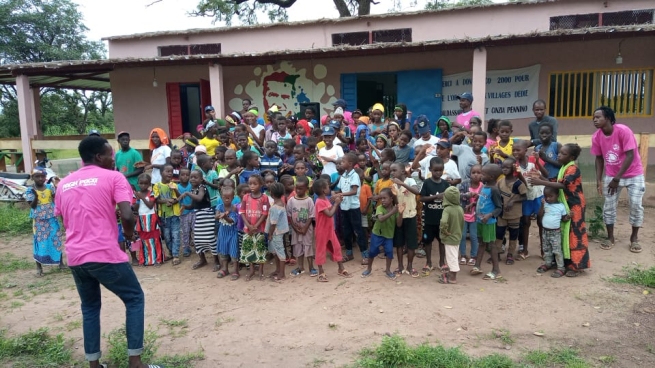INDIA: New Youth Hostel Allows Indigenous Youth to Attend School

(MissionNewswire) Don Bosco Missions Association in Turin, Italy recently completed the construction of a hostel for indigenous youth from the Tillapara region in Assam, a state in northeastern India. The hostel will provide a home for youth from villages in the area who live too far from the Salesian school to be able to walk there and back each day. Students will be able to live near the school in the new hostel and continue their education.
The construction of the hostel was a challenge given the ongoing tension between two different ethnic groups, the Rabhas and Garos, who occupy the region. There were several interruptions during construction due to ethnic clashes. In addition, frequent rains and flooding and challenges obtaining construction materials and qualified workers hampered efforts. In spite of the challenges, the hostel was completed and will be open to students for the 2015-2016 school year.
“There are many poor youth who live in these local villages who are unable to read and write because they have been unable to attend school,” says Father Mark Hyde, executive director of Salesian Missions, the U.S. development arm of the Salesians of Don Bosco. “Youth struggle not because they don’t want to study but because the school is several miles away and they cannot walk that distance every day. The new hostel brings hope to the youth from these local villages.”
At the hostel, students will receive room and board as well as educational materials. Their basic needs including shelter, nutritious meals and continuing educational and social support will be provided. Salesian missionaries in the area operate primary and secondary schools as well as offer advanced technical and vocational education programs. Student who were once unable to attend school will be able to gain an education and the skills necessary to go on to lead productive lives.
“Without the proper education, poor youth are unable to learn the skills needed for later employment and the cycle of poverty will continue,” adds Fr. Hyde. “Youth who are not in school are also more at-risk for child labor, homelessness and victimization.”
Young people in India, especially those living in poverty, are faced with child abuse, neglect, exploitation and forced child labor at an alarming rate, according to UNICEF. India has the largest number of child laborers under the age of 14 in the world with many forced into dangerous occupations and living on the streets. In 2010, India passed a landmark law mandating that all children between the ages of 6 and 14 be in school, but according to UNICEF, millions of children remain in the workforce. Full implementation of the law was to go into effect in 2013, but child workers can still be found in almost every industry in India. The problem is enforcing the law, particularly in high poverty regions of the country.
With more than 400 million poor people, or one-third of the world’s poor, according to UNICEF, ensuring youth have access to education in order for them to find stable employment at the appropriate age and break the cycle of poverty, is a priority in the country. Although more than 53 million people escaped poverty between 2005 and 2010, most remain vulnerable to falling back below the poverty line.
###
PHOTO: © UNICEF (Stock photo) Girl walking to school in India.
Sources:
ANS – India – A new hostel to enable indigenous children to attend school
UNICEF – India




